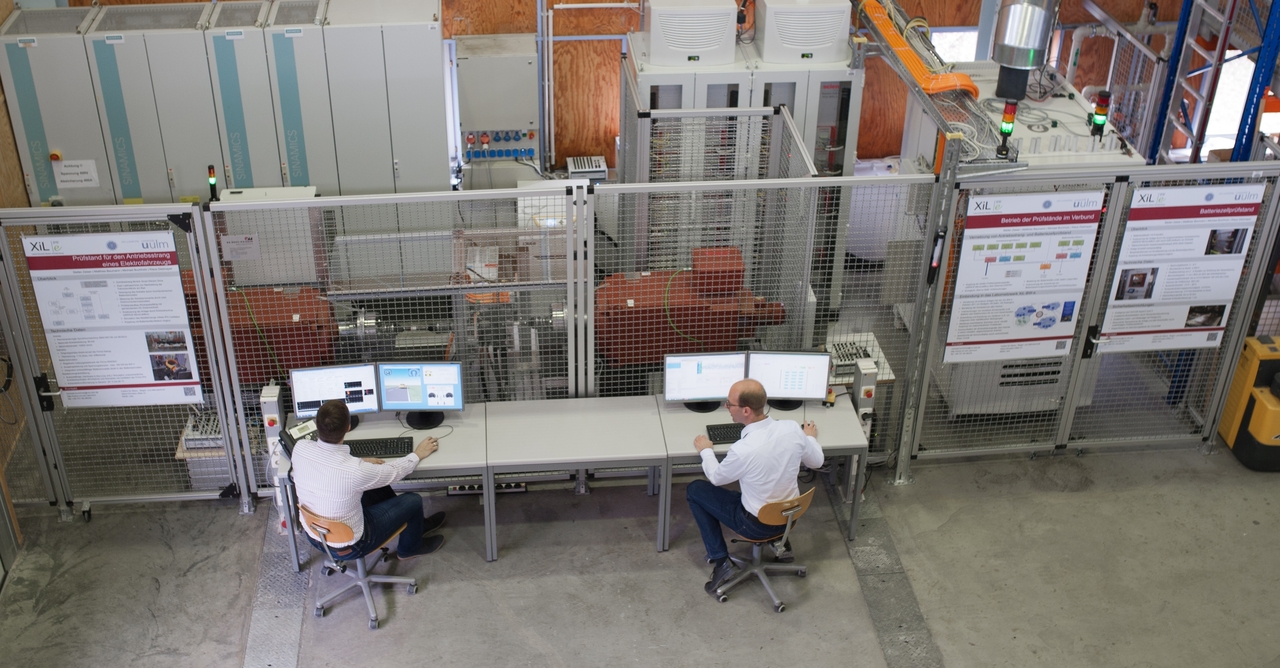Electric Mobility
After far more than 100 years of development of combustion engines for road transport, electric mobility suggests to be the start of a technological transition in traffic systems. Electrification of the power trains is an important key to a sustainable future. It offers the possibility to reduce the dependency on oil, to minimize emissions, and to integrate the vehicle much easier into a multi-modal traffic system.
Research Focus
Methods for vehicles with electric power trains and their components have successfully been developed applied since many years at the Institute of Measurement, Control an Microtechnology. The scope of vehicles reaches from commercial vehicles via passenger cars to electric two-wheelers. For these vehicle, real-time applicable and centralized operation strategies have been developed. These supervisory controls realize the acceleration and braking forces as well as the yaw moment requested by either the driver or the automated vehicle itself in a predictive, safe, and energy efficient manner. Furthermore, the model-based monitoring of the electric power train and its components has been addressed.
Another focus is laid on data-driven modelling of batteries and fuel cells for real-time applications on-board a vehicle. To achieve the goal of simple and accurate models for these complex components, new methods are developed to extract the required information from test rig measurements. This accurate and computationally cheap models are additionally used as a basis to develop and implement monitoring methods, e.g. aging detection or fault detection and diagnosis.
Test Vehicles and Test Rigs
Testing our developed methods as close to reality as possible is an important issue of our reserach. In projects with vehicle focus, we thus use specific test or demonstrator vehicles, which we partly build up or adapt within the respective projects. Additionally, the Electric Mobility group operates two battery cell test rigs and an electric power train test bench.
The large battery cell test rig with a temperature chamber allows for a connected operation with the power train test rig for realistic cycling of battery cells. All test rigs as well as the networked operation are described in detail on the page Electric Mobility Test Rigs.
Model Library
Within the project "XiL-BW-e - Frameworkbasiertes XiL-Labornetzwerk BW für Elektromobilität" (XiL-BW-e - framework-based XiL laboratory network Baden-Württemberg for electric mobility), which has been funded by the Ministery of Science, Research and the Arts of Baden-Württemberg, we developed three simple energy storage cell models. This models are freely available as ZIP archives without any kind of warranty. All models have been implemented in MATLAB/Simulink format and are only valid for dynamic cycling operation. The models have been parametrized from measurements of real cells. All further information including the information for correct citing if used in publications or theses are available within the comments of the start-up script of the respective model.


